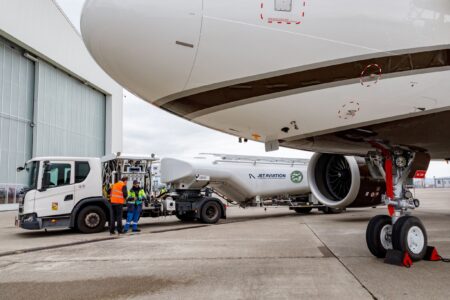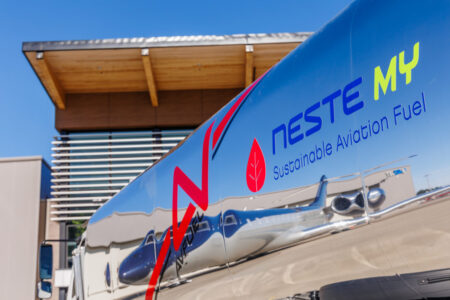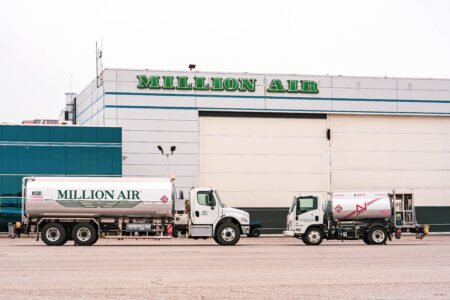The National Business Aviation Association (NBAA), in conjunction with an industry-led working group, has released recommendations for aircraft operators, FBOs, fuel suppliers and other stakeholders to mitigate the possibility of diesel exhaust fluid (DEF) contamination in jet fuel.
DEF is a colorless liquid, injected directly into the catalytic convertor in diesel engine light- and heavy-duty vehicles in order to meet stringent Environmental Protection Agency (EPA) emission control standards. When mistakenly added to aircraft jet fuel, DEF crystalizes and clogs fuel systems, leading to engine failure.
In three separate and distinct instances over the past three years, DEF has been mistaken for fuel system icing inhibitor (FSII), a clear liquid that is added to aircraft jet fuel.
“Currently, there is no available field test that can detect the injection of DEF into aviation fuel. FBO staff and aircraft operators cannot visually, or chemically (using current field methods) detect that a contamination event has occurred,” the Aircraft Diesel Exhaust Fluid Contamination Working Group said in its June 11 report. “This situation places the full burden of risk mitigation upon initial contamination prevention.”
The recommendations focus on ‘preventative, detection and response’ measures for aircraft operators, FBOs, fuel suppliers and aviation industry groups and government agencies.
Ed Bolen, NBAA president and CEO, said, “NBAA calls on all business aviation stakeholders to familiarize themselves with risk of diesel exhaust fluid contamination of aircraft fuel, and to partner in our industry’s efforts to prevent another DEF contamination event by immediately adopting the report’s short-term mitigation recommendations and incorporating future mitigations and technologies as they are identified.”
The report strongly urged ‘all stakeholders to review this report and use it to review their particular segment of the overall system and make immediate and appropriate changes, once identified, and continually monitor, check and re-check to ensure the proper processes and procedures are, and remain, in place.’
In addition to NBAA, the working group is comprised of representatives from the Aircraft Owners and Pilots Association (AOPA), AvFuel, CommScope, Dassault Falcon Jet, Fair Wind Air Charter, the FAA, FBO Partners, Epic Fuels, the General Aviation Manufacturers Association, GAMMON Technical Products, Gulfstream, Murray Equipment Inc., Midwest Aviation, the National Air Transportation Association, Phillips 66, Sheltair, Signature Flight Support, TAC Air, Total Control Systems, Truckee Tahoe Airport, Union Pacific and World Fuel Services.





